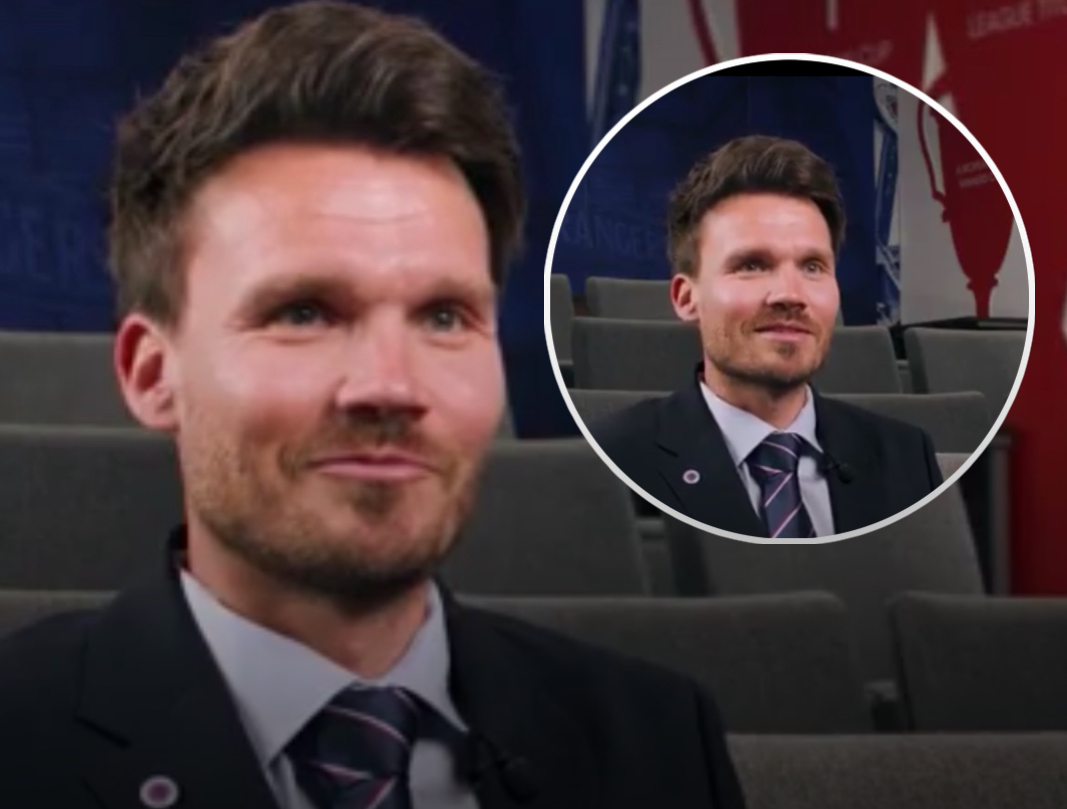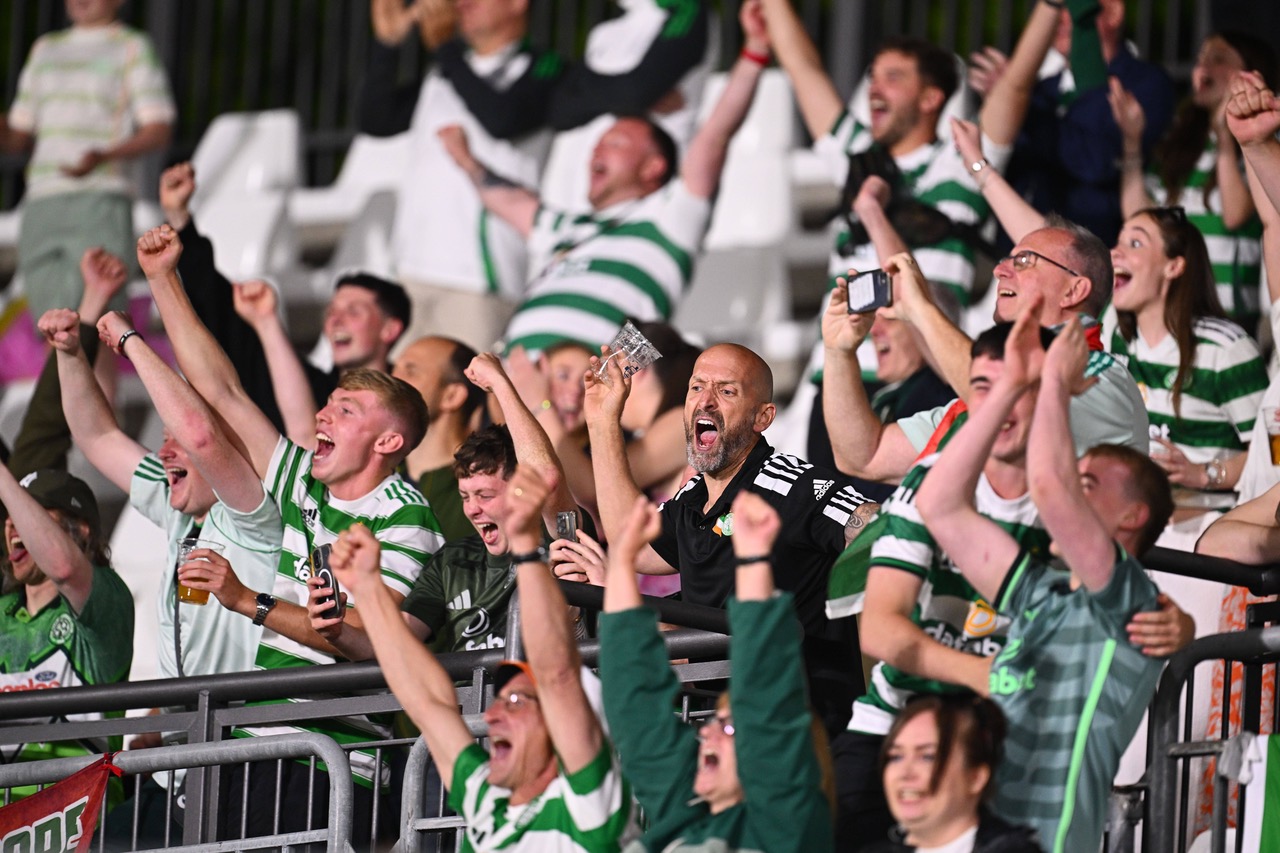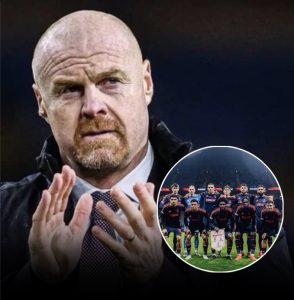DANNY ROHL MADE HIMSELF A PERMANENT ENEMY OF ENTIRE CELTIC FANS BASE OVER WHAT HE SAID WHEN ASKED ABOUT THE RIVALS
Thank you for reading this post, don't forget to subscribe!
When a coach walks into one of world football’s most febrile derby environments and makes a throwaway line about pressure and expectation, the words rarely stay small. Danny Röhl’s arrival at Rangers this autumn — and a comment reported from conversations with former player Barry Bannan — has been seized on by Celtic supporters as dismissive, tone-deaf or arrogant. The result: a fast-hardening of opinion among a sizeable portion of the Celtic fanbase that Röhl has, whether intentionally or not, made himself an enemy of their supporters.
Below we unpack what was said, why it provoked such anger, and what the fallout means for the Old Firm going forward.
The facts: appointment and the remark
Danny Röhl, a 36-year-old German coach with experience as an assistant at big clubs (Bayern Munich among them) and with the Germany national setup, has been appointed Rangers manager following a turbulent recruitment process. The appointment was widely reported in the press and confirmed by outlets covering the Scottish game.
In interviews that circulated before and after his arrival, Röhl’s name was attached to a comment floating around via Barry Bannan: that the atmosphere and pressure at Glasgow’s big clubs — Celtic and Rangers — resembles the kind of demand he saw at Bayern Munich, “where a draw isn’t good enough.” That line — used to illustrate the relentless demand for results — has been picked up repeatedly in club media and fan sites.
It’s this comparison — even if offered as praise for the intensity of the environment Röhl has experienced — that has irritated Celtic supporters who read it as either a minimising of Celtic’s identity or as a knowing slight from a man now installed at their fiercest rivals.
Why a seemingly small comment became a big problem
To anyone outside Glasgow, the Old Firm rivalry is great theatre; to those inside it, the derby is woven into local identity, history and community. Context transforms words into symbols. A few reasons why Röhl’s remark triggered such a heated response:
- Old Firm sensitivity. Celtic and Rangers are not just clubs: they are social and cultural institutions with histories and constituencies. Anything that appears to compare or reduce their unique identities to a footballing “pressure cooker” at Bayern can read as dismissive. In this environment, nuance rarely survives first reaction.
- Rival optics. Röhl’s comment circulated in the context of his being linked to — and then appointed by — Rangers. Comments from figures associated with the rival club are automatically filtered through suspicion. Even neutral or positive observations can be reframed as antagonistic.
- Timing and media amplification. The appointment arrived after a messy recruitment saga that drew scrutiny of Rangers’ boardroom decision-making. When a controversial or ill-timed quote hits the internet during such a period, fan outrage multiplies. Social media and partisan outlets have amplified the comment and turned it into a touchstone for wider criticisms.
- The “permanent enemy” dynamic. Once a narrative begins that a figure has shown disrespect, the narrative tends to ossify. In derby footballland, perceived disrespect is often unforgiving; fans will keep it in mind every time the man steps out for an Old Firm weekend.
What Celtic supporters are saying
Across forums, social media and fanzines, many Celtic fans have expressed irritation — some milder, some far angrier. Common themes:
- Disrespect for identity. Several fans frame the comment as if Röhl was saying Glasgow’s rivalry is interchangeable with any other big club pressure — implying he doesn’t grasp the historical or emotional uniqueness of Celtic.
- A chip on the shoulder. Some supporters say the remark confirms an arrogant or flippant attitude that they expect from rival managers and that it will motivate supporters on matchday.
- Preemptive hostility. Even before Röhl’s first Old Firm as manager (a domestic clash scheduled soon after his appointment), sections of the fanbase say they will greet him with boos and vocal hostility; in the age of social media such sentiment spreads rapidly.
It’s worth stressing that not every Celtic fan has reacted the same way: some are ambivalent, others dismiss the fuss as manufactured clickbait. But the loudest reactions — which shape the media narrative — have been punitive.
Röhl’s own positioning: winning first, pleasing later
Röhl’s early public statements since taking the job have emphasized immediate priorities: win matches, restore confidence, and create momentum. He told reporters his focus is practical — “at first you have to win games, then you can speak about playing attractive football” — and that the short-term job is to generate winning runs and build togetherness with the fans. That pragmatic positioning has not neutralised the earlier reaction to his Bayern/Celtic remark.
From Rangers’ perspective, the board and new coach will hope that results — quick victories and an upturn in form — blunt the personal animus. Football history is littered with managers who reclaimed public affection through success; but in the Old Firm, results only shift narratives gradually when decades of rivalry and identity are involved.
The risk of escalation — what to watch for
A single line can become lastingly toxic if it’s followed by on-field incidents, touchline rows, or further comments. Potential flashpoints:
- Derby press conferences and micro-slights. Any perceived dig by Röhl during Old Firm build-up will be replayed endlessly and used as proof of ill intent.
- Touchline interactions or post-match comments. An exchange with a Celtic manager, player or fan that can be framed as confrontational will amplify resentment.
- Fan behaviour. Chants, banners and social media campaigns keep narratives alive. Celtic fan groups may use Röhl’s quote as fodder to rile their own support — and that will be captured by tabloids.
If Rangers perform strongly under Röhl and he remains calm and respectful in public, the controversy may fade — but if friction is allowed to persist, the label “enemy” can stick for years.
The club angle: Rangers’ handling of the fallout
Rangers’ leadership accepted mistakes in the recruitment process and publicly backed the new coach’s arrival as the right call for the club’s future. Their immediate task is to manage the optics between club, manager and supporters: reassure fans, steady the ship, and hope that positive results mute criticism. But the club must also be aware of how off-hand remarks can inflame Old Firm narratives and must coach Röhl on media nuance in Glasgow.
Conclusion — words matter, but results usually matter more
In the hyper-attuned world of Old Firm football, a single line — made in a different context and perhaps offered as a compliment to the intensity of Glasgow — has been converted by many Celtic supporters into proof of disrespect. Whether Danny Röhl (mis-named by some as “Danny Bohl”) has made himself a permanent enemy of Celtic fans depends on how events unfold: if he loses heavily to Celtic, or if he repeatedly utters comments that appear careless, that animosity will calcify. If, instead, he treats the rivalry with respectful humility and lets on-field performance (and measured public behaviour) dominate the narrative, the current hostility may ebb.
What’s certain: in the cauldron of Glasgow football, words are rarely neutral, and every press conference is another chapter in a rivalry where history, memory and identity guarantee that even small remarks can take on outsized life. For now, Danny Röhl steps into Ibrox with a target on his back in the eyes of many Celtic supporters — whether he remains an “enemy” will be decided in part by his manner, but decisively by the results he can produce in the coming weeks.








Post Comment